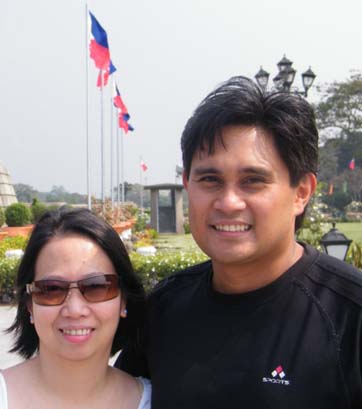by Noreen Cayabyab-Orticio and Gino Orticio

The path our fellow Filipinos took is daunting. They gave up familial care and social networks to find work in a strange land. Many say they chose to leave these comforts primarily because of the growing economic insecurity their families are facing. To put it figuratively: a sting in the stomach is enough reason to leave.
Upon landing in Australia, one of the first things to adjust is the daily diet. An accustomed diet creates a habituated menu of what is “good food”. While OFWs adjust to an Australian diet, their constant cravings of the homemade viands such as but not limited to: tuyo, bangus, adobo, longganisa, halo-halo and ginataan[*] is not a rarity. They will eventually discover the nearest Filipino shop with the help of a network of friends and co-workers. Shops may provide an understandably limited array of Filipino flavourings like vinegar and sauces, so ingredients are sometimes substituted with the readily available off the shelf. The result is a mixture of imported Filipino and Australian ingredients with a taste distinctively Filipino to the palate.
While an OFW’s diet may be a sort of cultural reclamation taking elements from both host and native country, their engagement in Australian economic transactions is a matter of cultural adjustment. A cashless economy is alien to most Filipinos except for those few who are already used to internet- or cellphone-based transactions. Newly-arrived OFWs would be surprised to discover that most shops in Australia have the option to pay directly from one’s own bank card, whether buying groceries, purchasing goods or eating at a fastfood joint. Shops providing foreign exchange remittances to the Philippines also give an option to send money in plain cash or electronically.
Physical mobility is another adjustment. The transport system is in stark contrast to what we have in the Philippines. Hailing an available taxi, jeepney or tricycle to stop right in front of our homes is a common practice. Comparatively, the Australian transport system provides designated stops and no matter how far from one’s home you have to grin and bear the walk. One has to organise the travel day to suit bus and train schedules, which is different from the very accessible means back home.
OFWs in Australia have to follow a different work system. Usually assigned to work during graveyard shifts, they may also have to work during designated holidays for overtime pay that may be only a bit rewarding. There are cases where breaks between shifts are short and given at the discretion of management. OFWs could not help but feel they are working at the expense of their own rights, but do not complain because they fear recrimination from employers lest their visas become invalidated and are forced to go back home where work may be available but wages are not enough to meet the cost of living.
Perhaps the bigger challenge is dealing with loneliness and isolation. Although the Pinoy is regarded as quintessentially affable, friendships are not easily formed for the OFW and the chances of being socially isolated in a country with stark cultural differences is a dreadful reality. Perhaps unlike European migrant workers of the recent past, common interests and engagements are not easily identified by OFWs in the Australian context except for the Hollywood-orientated mass media, and the feeling of being discriminated against is high. However, coping with loneliness and isolation is addressed in many ways. Some retreat from mainstream Australian society and retire to the confines of their relatives and friends back home through internet-based communication. Others seek fellow Filipinos at work, the shops, the regular commute and other places. There they develop, forge and sustain friendly relationships throughout their lifetime.
Branded as heroes, we often expect the OFW to do extraordinary feats; creating a notion that they “give away money easily” and that they live comfortably in this part of the postcard. Yet the reality is that OFWs have to grapple with personal and economic insecurities that are not being responded to by the rightful institutions both in their host and home countries. Maybe in the end they are truly heroes because they have learned and coped despite the lack of sensitivity to their plight.
Endnote:
*tuyo = whole dried salt-cured fish, bangus = milkfish, adobo = a stew of pork and/or chicken with soy sauce, vinegar, garlic, pepper and bay leaf, longganisa = pork sausage, halo-halo = traditional sweet and creamy dessert consisting of a melange of beans, corn, jackfruit, coconut meat, banana slices, jelly, sugar, sweet yam, condensed or evaporated milk, shaved ice and ice cream, ginataan = cooked in coconut milk.
 Home | Aims and Objectives of Solidarity Philippines Australia Network | About Kasama
Home | Aims and Objectives of Solidarity Philippines Australia Network | About Kasama 
Search the SPAN Web